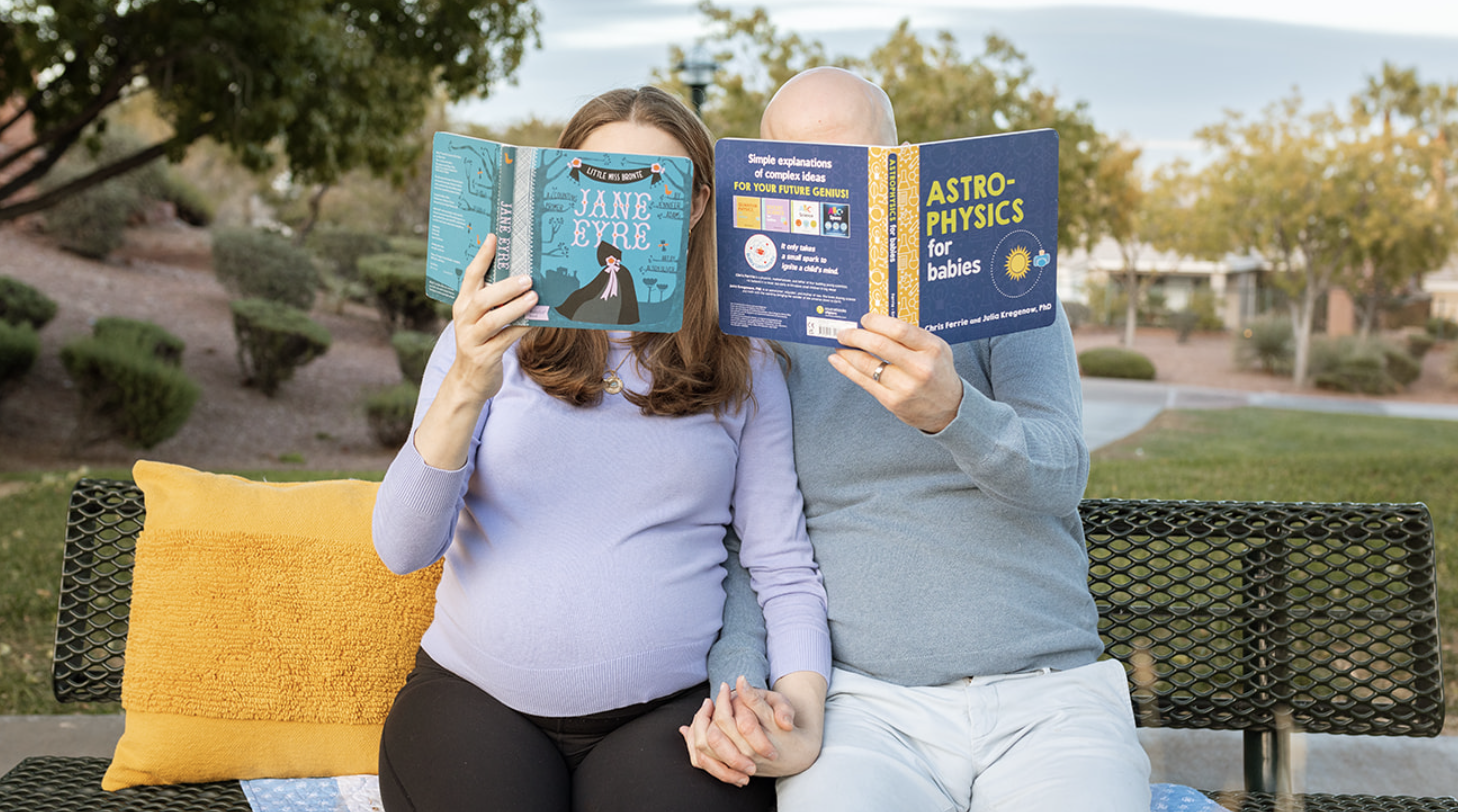Should you be anxious about “overfunding” a 529 account?
Caitlyn Driehorst is a financial advisor at RightWise Wealth, as well as the firm's founder and CEO. Caitlyn began her career at the Boston Consulting Group and held strategy roles at MGM Resorts, Capital Group American Funds and two venture-backed wealth startups. She holds a B.A. from the University of Chicago and an M.B.A. from UC Berkeley's Haas School of Business.
Published: August 1, 2025
We encourage our clients to front-load their 529 accounts for their children: this allows more time and more “kindling” for the compounding that can cover their children’s educational expenses with investment gains and tax savings rather than cash.
“But Caitlyn,” I’ll often hear. “College is 18 years away for my little one. What if he gets a scholarship? What if he decides to go to vocational school instead? Or a military academy with no tuition, or a university in Europe which is cheaper? What if our university system no longer exists, either from AI or from the federal government’s attacks on our institutions? What if I’ve over-funded this 529?”
My little son is eight months old, so my husband and I have been asking these questions ourselves, as well. Here are my thoughts as to why funding your child’s 529 is still important:
College is so expensive, you’d need a LOT to overfund that account
I graduated from the University of Chicago for my undergrad; if my little Jonny attends UChicago in 2042, the estimated full cost of four years would be ~$940,000. As a friend recently joked, “My thoughts have progressed from, ‘Wow, it’d be really neat if he got into Princeton,’ to, ‘So exciting, he actually may get into Princeton!’ to ‘Oh my god, what am I going to do if he gets into Princeton?!’”
529 money is good for college-related expenses other than tuition
You can also use 529 funds for other college-related expenses: room and board, campus fees, a laptop, software, lap equipment. (Not eligible for 529 withdrawals? Student health insurance and costs associated with travel. Look forward to hearing, “Gee, Mom, I’d love to come home just for Thanksgiving but the flights aren’t eligible for tax-advantaged withdrawals!”)
529 money can offset study abroad tuition or tuition at foreign / overseas universities
One of the highlights of my undergrad was studying Russian at Moscow State University one summer; though my ability to pronounce “ы” never rose above my instructors’ contempt, I walked away with a much more practical vocabulary than my UChicago coursework. (We were taught to recite Pushkin but “how to order food in restaurants” was seen as too pedestrian for the curriculum.) If your child studies at university outside the U.S., whether for their full degree or for study abroad, that tuition is eligible for 529 withdrawals, so long as the university is on an accreditation list maintained by the U.S. Department of Education.
529 money can also go towards private K-12 tuition and expenses
All the more reason to front-load your 529 early. 529 money can go towards tuition, fees, books and supplies for K-12. This benefit was created in the 2018 tax bill, and expanded in the 2026 tax bill. (Note that some states are not as generous here; California will still charge you taxes on these withdrawals.)
529 money can also go towards graduate education
Suppose your child does get a scholarship for college – they still may want to go to law school, dental school, Ph.D, MBA or some other graduate program. 529 money can go towards those expenses. (Just think of the extra years of compounding available for this pursuit! I salivate.)
Therapies and tutoring for students with learning disabilities can be covered
If your child needs additional support for learning differences, those expenses can be offset by 529 funds. (Expect some additional paperwork here; your child may suffer from executive function challenges but you’d better have a strength in that area!) (This is a new eligibility from the 2025 tax bill, also illustrating the legislative trend towards increasing flexibility for these accounts.)
Apprenticeship and credentialing programs are also now eligible for 529 withdrawals
Suppose your little girl watches “Flashdance” as much as I did in middle school and decides she really wants to become a welder. (At least, let’s hope that’s the career path she’d pick up from that film. Ballet dancers face a challenging job market.) Vocational programs are now eligible for 529 withdrawals, as of the 2025 new tax bill.
529 money can be rolled into a Roth IRA for you or for your child
The process is stupidly fussy, and subject to annual limits, but you can transition 529 money into Roth accounts to be used for retirement instead.
You can change the beneficiary on the account and use 529 money for another child’s tuition
Your daughter declares she’s not going to Duke; she’s going to stay in Thailand and meditate on capitalism for four years instead. That’s OK; you can change the beneficiary of her 529 account to the name of your youngest son, who seems suspiciously eager suddenly to leave the house and avoid eye contact with your oldest son. (“White Lotus”? Anyone?) You could even direct unused 529 funds towards a niece or a nephew.
You can use 529 money for your own continuing education in retirement
Retirement leaves you with a lot of hours to fill in a day. Want to take a watercolor class? Join a creative writing circle? So long as those classes are at an accredited institution, you can change the beneficiary on the 529 account and use that money for your own enrichment.
You can let the money compound to fulfill a “dynasty 529” strategy
As Tracy Jordan once said, “I’m going to have so much money, my grandchildren will play lacrosse!” In “The Nerds’ Eye View” blog, Jeffrey Levine describes the “dynasty 529” strategy, whereby a super-funded 529 becomes a tax-free family endowment that can create a legacy of education for multiple generations within a family. On a big-picture level, I’m not sure I love the implications here for American meritocracy; but on a little-picture level, I love this opportunity for clients to express values of education and provision for a generation yet to be born.
Answer big life questions based on numbers, not vibes
I understand the concern of over-funding a 529, and the prospect of funds being locked up outside your use can be daunting. In practice, however, the costs of education are so significant and the flexibility of these accounts is so broad, it’s just not an anxiety that I believe is truly useful to the client profiles we serve.
That said, every situation has its nuances. The most common challenge we discuss with clients? The 1:1 tradeoffs between funding education and funding retirement, which also benefits from compounding and early contributions. We’re able to use advanced projection software to help our clients answer such questions specifically for them – and accounting for other tradeoffs, like time out of the workforce or purchasing a second home – so that our clients can answer these big life questions based on numbers, not vibes. If you’re interested in what that analysis can look like for you, reach out today to speak with one of our advisors for a no-pressure conversation.
Register for our upcoming webinar, “Five Financial Moves for Parents”
You've achieved a lot of Maslow's Pyramid for your kiddos: Housed, check. Eating, check. Sleeping -- well, mostly check.
But what are the money moves you need to make sure that you're taking care of their financial needs and your financial needs, and protecting the new layers of risk that exist in your life? Join us for a lively discussion of five important money moves to make when your children are young, including:
Saving for college and saving for retirement, at the same time
Updating your insurance (and not get scammed in the process)
Preparing the documents that would protect your family if something happened to you (or both of you)
Whether you'd rather step on loose Lego than think about your retirement accounts or whether that piggy bank in "Toy Story" has nothing on you, we welcome you to join us for our 45-minute presentation followed by open Q&A.
Register to join our session on
Tuesday, August 5, 2025, at 9:00 Pacific / 12:00 noon Eastern.
Want to work with someone who can do the math for you?
This may be the first time you’re learning how 529 accounts work. But this is something we work with all the time on behalf of our clients. You absolutely could research plans, download the PDF disclaimers, figure out the underlying fund menus — or you could throw it over the fence to someone who loves this stuff.
We’d love to talk with you about the long-term, holistic financial advice relationships we build with our clients. Book a discovery call below.














